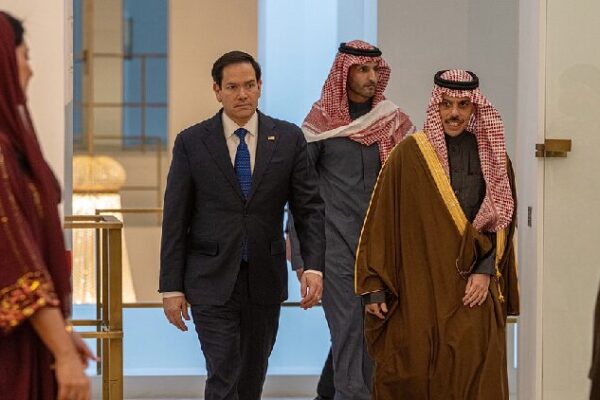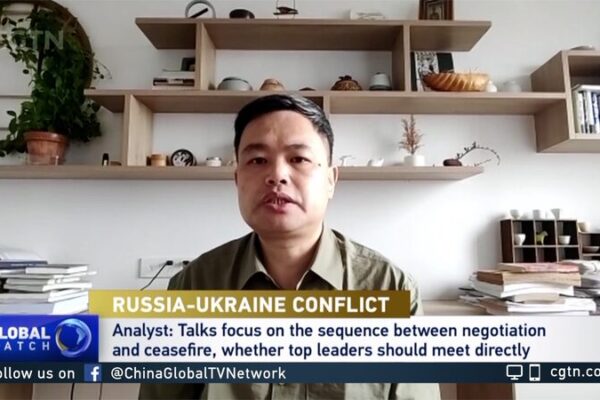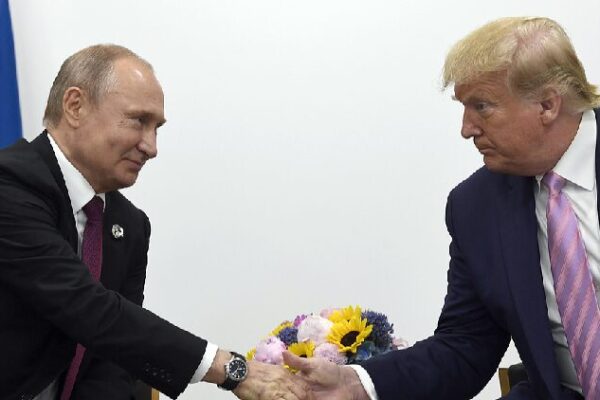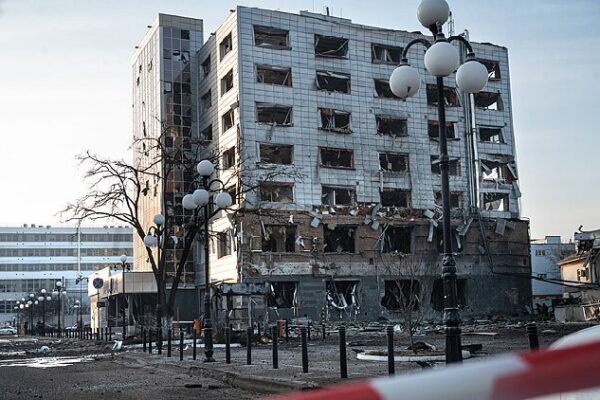Experts: Long Road Ahead for Russia-Ukraine Ceasefire After Riyadh Talks
Three days of negotiations on a potential ceasefire in Ukraine concluded in Riyadh on Tuesday without an official joint statement. Experts suggest that a real Russia-Ukraine ceasefire remains distant, as the United States, Russia, and Ukraine have differing demands and needs.
“Ways to bring an end to the conflict are complicated due to the varied interests involved,” said Wang Yiwei, a professor at the School of International Studies at Renmin University of China. “The U.S. wants to reduce its involvement and lessen the burden on Americans. Meanwhile, Russia seeks not just a simple ceasefire but also resolutions to issues like NATO’s eastward expansion and the post-war order in Europe.”
Cui Hongjian, a professor at the Academy of Regional and Global Governance at Beijing Foreign Studies University, believes the lack of a joint statement indicates deep divisions between Russia and Ukraine over a ceasefire. “Ukraine fears that a U.S.-Russia compromise could come at its expense,” he noted. “Russia sees ceasefire discussions as a way to achieve broader goals, such as pushing the West to ease or lift sanctions, which only heightens Ukraine’s concerns.”
He added, “The ongoing intense fighting between Russia and Ukraine shows that neither side has shown enough willingness to agree to even a temporary ceasefire. Such a ceasefire must serve as a foundation for broader or long-term peace. Otherwise, its impact on resolving the overall conflict will be minimal.”
Despite Washington signaling its willingness to facilitate negotiations between the warring parties, analysts remain skeptical about the prospects of such diplomatic efforts, citing deep-seated distrust, conflicting demands among stakeholders, and the inherent complexities of the process.
Conflicting Assessments
“The fundamental cause of the current deadlock lies in an imbalanced approach to mediation that fails to address the concerns of all parties involved,” said Kang Jie, an associate research fellow at the China Institute of International Studies. “Attempting to hastily broker a ceasefire without considering the interests of smaller nations overlooks the historical intricacies and complexities of the Ukraine crisis.”
Kang added that a ceasefire marks merely the beginning of the end, and substantive negotiations for a lasting agreement are still out of sight. “Only when all direct parties and stakeholders are integrated into the negotiation process can there be progress toward a durable agreement that balances competing interests,” he said.
On Tuesday, after the U.S. and Ukrainian delegations concluded their talks, the White House issued separate statements detailing its understanding of the parallel meetings. It stated that the U.S. had agreed separately with Russia and Ukraine to ensure safe navigation, eliminate the use of force, and prevent the use of commercial vessels for military purposes in the Black Sea. The statements also mentioned developing measures to ban strikes against energy facilities.
Among the outcomes of the U.S.-Russia talks, the U.S. pledged to help restore Russia’s access to the global market for agricultural and fertilizer exports, reduce maritime insurance costs, and improve access to ports and payment systems for such transactions.
Meanwhile, the Kremlin stated that Russia and the U.S. had agreed to ensure the implementation of the Black Sea Initiative, contingent on easing sanctions on Russia’s agricultural and food trade.
A Long Road to a Real Ceasefire
“The U.S. is eager to showcase its mediation efforts, but the absence of immediate statements from Russia indicates that there has not been a complete agreement on specifics, such as the partial lifting of sanctions,” Kang noted. “This suggests that Russia hopes to continue putting pressure on the U.S.”
Kang pointed out that while there is common interest in reaching a compromise regarding the Black Sea, this compromise is currently fragile. “There may be differences in defining military operations in the Black Sea region, ensuring a ceasefire, and assigning responsibility for any breaches,” he explained.
Cui suggested that relying solely on the U.S. to mediate may not lead to a real ceasefire. “Russia and Ukraine cannot negotiate directly at this point,” he said. “If they truly want to reach a consensus, they should take the initiative to reduce military confrontations and turn towards a peaceful solution.”
He added that Europe should play a more proactive role in the peace process. “Rather than passively supporting one side, European countries could facilitate dialogue and encourage steps towards de-escalation,” Cui said. “As it stands, a true ceasefire between Russia and Ukraine is still a long way off.”
Reference(s):
Experts: Long road to a Russia-Ukraine ceasefire after Riyadh talks
cgtn.com








